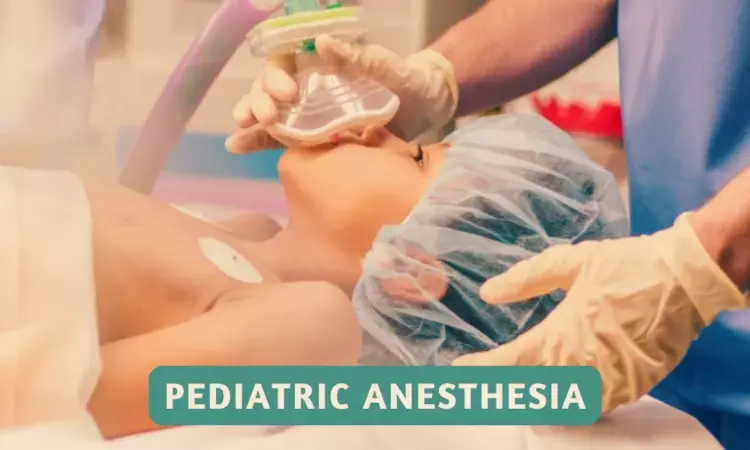- Home
- Medical news & Guidelines
- Anesthesiology
- Cardiology and CTVS
- Critical Care
- Dentistry
- Dermatology
- Diabetes and Endocrinology
- ENT
- Gastroenterology
- Medicine
- Nephrology
- Neurology
- Obstretics-Gynaecology
- Oncology
- Ophthalmology
- Orthopaedics
- Pediatrics-Neonatology
- Psychiatry
- Pulmonology
- Radiology
- Surgery
- Urology
- Laboratory Medicine
- Diet
- Nursing
- Paramedical
- Physiotherapy
- Health news
- Fact Check
- Bone Health Fact Check
- Brain Health Fact Check
- Cancer Related Fact Check
- Child Care Fact Check
- Dental and oral health fact check
- Diabetes and metabolic health fact check
- Diet and Nutrition Fact Check
- Eye and ENT Care Fact Check
- Fitness fact check
- Gut health fact check
- Heart health fact check
- Kidney health fact check
- Medical education fact check
- Men's health fact check
- Respiratory fact check
- Skin and hair care fact check
- Vaccine and Immunization fact check
- Women's health fact check
- AYUSH
- State News
- Andaman and Nicobar Islands
- Andhra Pradesh
- Arunachal Pradesh
- Assam
- Bihar
- Chandigarh
- Chattisgarh
- Dadra and Nagar Haveli
- Daman and Diu
- Delhi
- Goa
- Gujarat
- Haryana
- Himachal Pradesh
- Jammu & Kashmir
- Jharkhand
- Karnataka
- Kerala
- Ladakh
- Lakshadweep
- Madhya Pradesh
- Maharashtra
- Manipur
- Meghalaya
- Mizoram
- Nagaland
- Odisha
- Puducherry
- Punjab
- Rajasthan
- Sikkim
- Tamil Nadu
- Telangana
- Tripura
- Uttar Pradesh
- Uttrakhand
- West Bengal
- Medical Education
- Industry
Sedating Smiles:Promise of Nebulized Dexmedetomidine in Pediatric GI Endoscopy, study finds

In a recent study aimed at improving the comfort of children during upper gastrointestinal procedures, researchers looked at the use of a medication called nebulized dexmedetomidine to help reduce the gag reflex, which can make such procedures very distressing. The gag reflex is the body's automatic response to something touching the back of the throat, and it can complicate the insertion of the endoscope, a tool used for examining the digestive tract. The researchers believed that using dexmedetomidine in a nebulized form (delivered as a fine mist) could help relax the children and lessen this reflex, leading to a smoother process in the endoscopy room. Over a period of a few months, the study was conducted with children aged 2 to 17 who were scheduled for these endoscopic procedures. T
hey were randomly assigned to either receive the nebulized medication or to a control group who wouldn’t receive any premedication. Monitoring was established to keep track of their heart rate, blood pressure, and oxygen levels throughout the procedure. The crucial part of the study was comparing how much gagging and coughing occurred between the two groups during the endoscopic procedures. The results showed significant differences: about 88% of children in the dexmedetomidine group did not experience gagging, compared to just 30% in the control group. Moreover, coughing incidents were much lower in the dexmedetomidine group, with 95% having no cough at all. Parental anxiety during separation became less of an issue, too, hinting at improved emotional comfort for the children. Overall, using nebulized dexmedetomidine not only made the procedures easier for the children but also resulted in a more satisfactory experience for the doctors performing them. The findings suggest that nebulized dexmedetomidine can effectively help pediatric patients handle the stress of medical procedures that traditionally induce anxiety and discomfort. This research points towards improving sedation methods and how they can enhance care for children undergoing similar medical treatments in the future.
Key Points from the Research Paper
1. Nebulized dexmedetomidine significantly reduced the incidence and severity of the gag reflex during upper gastrointestinal endoscopy in pediatric patients compared to the control group (11.7% vs 70% had no or mild gag reflex, respectively).
2. The incidence of coughing was significantly lower in the nebulized dexmedetomidine group compared to the control group (95% vs 55% had no coughing, respectively).
3. Limb movements against the endoscope placement were significantly less common in the nebulized dexmedetomidine group compared to the control group.
4. Parental separation anxiety was significantly lower in the nebulized dexmedetomidine group compared to the control group (81.7% vs 55% had easy separation, respectively).
5. The total dose of sedative agents required during the procedure was lower in the nebulized dexmedetomidine group compared to the control group, with a corresponding increase in endoscopist satisfaction.
6. The recovery time was similar between the nebulized dexmedetomidine and control groups, suggesting the sedative effects of nebulized dexmedetomidine reduced the need for additional anesthetic agents during the procedure.
Reference –
Esra Turunç et al. (2025). Effect Of Nebulized Dexmedetomidine On Gag Reflex Suppression And Sedation Quality In Pediatric Patients Undergoing Gastrointestinal Endoscopy: A Randomized Controlled Trial. *BMC Anesthesiology*, 25. https://doi.org/10.1186/s12871-025-03106-x.
MBBS, MD (Anaesthesiology), FNB (Cardiac Anaesthesiology)
Dr Monish Raut is a practicing Cardiac Anesthesiologist. He completed his MBBS at Government Medical College, Nagpur, and pursued his MD in Anesthesiology at BJ Medical College, Pune. Further specializing in Cardiac Anesthesiology, Dr Raut earned his FNB in Cardiac Anesthesiology from Sir Ganga Ram Hospital, Delhi.


